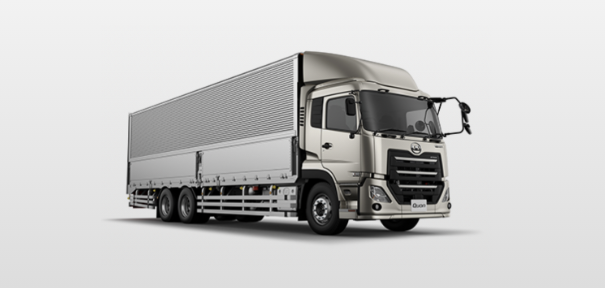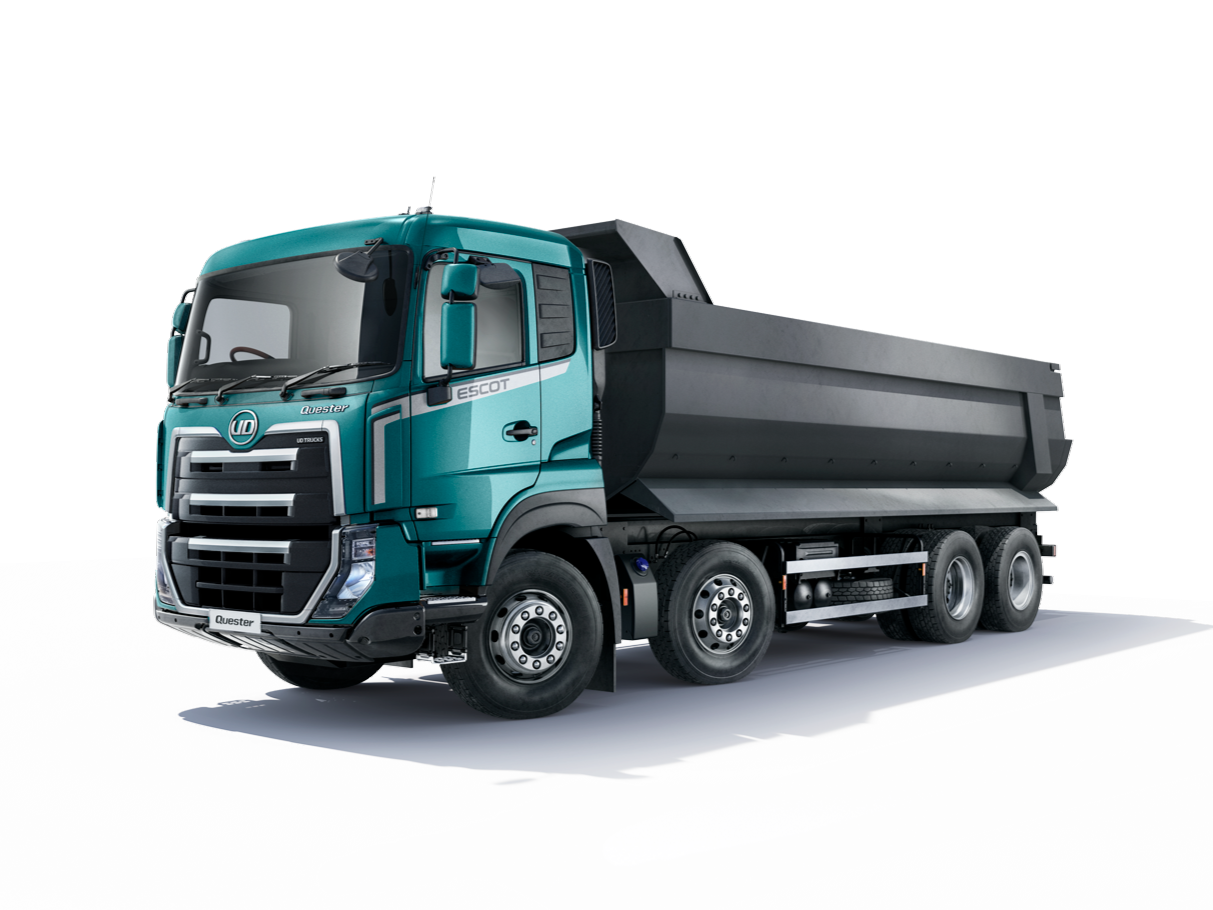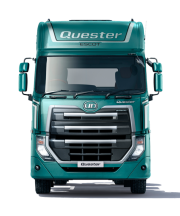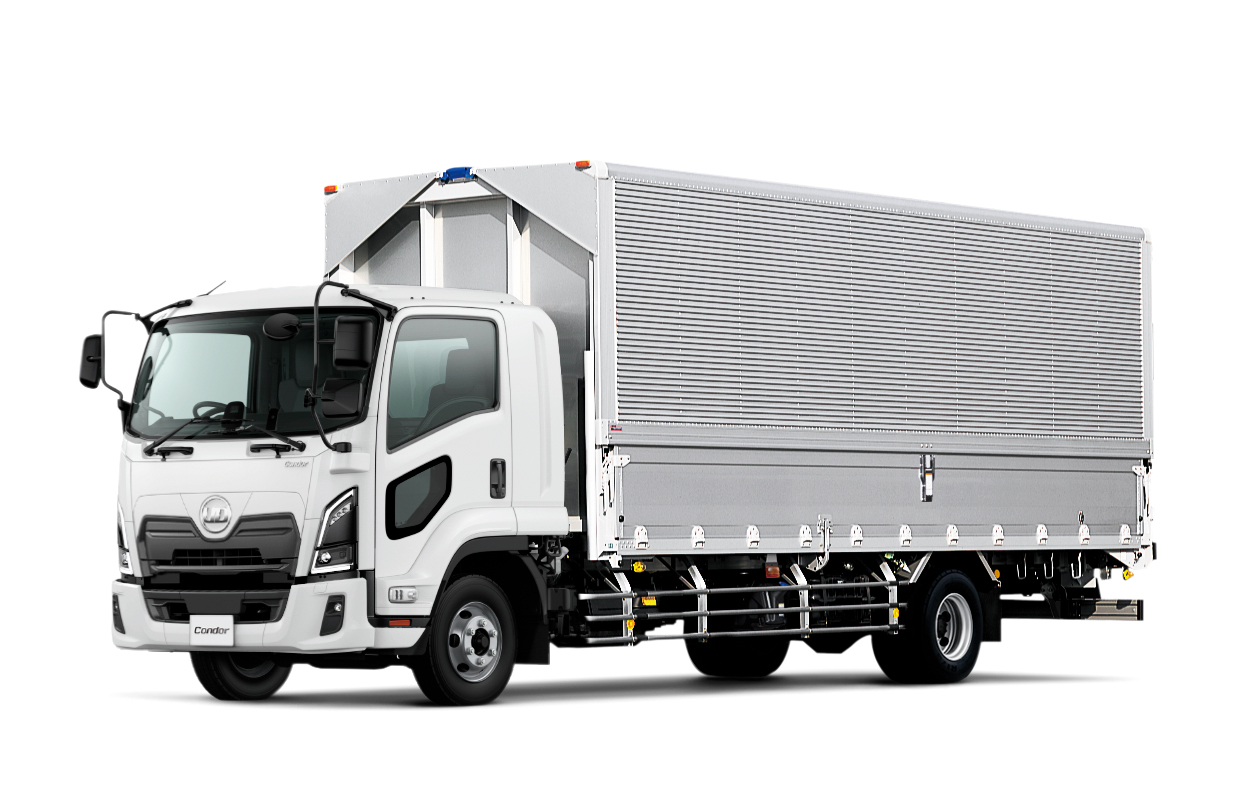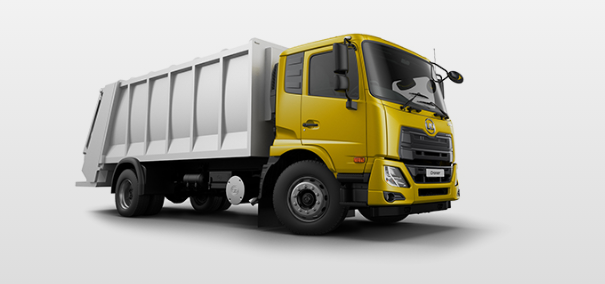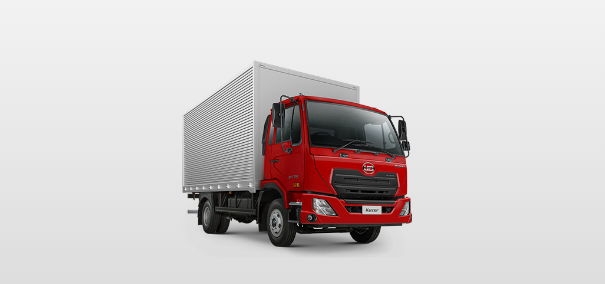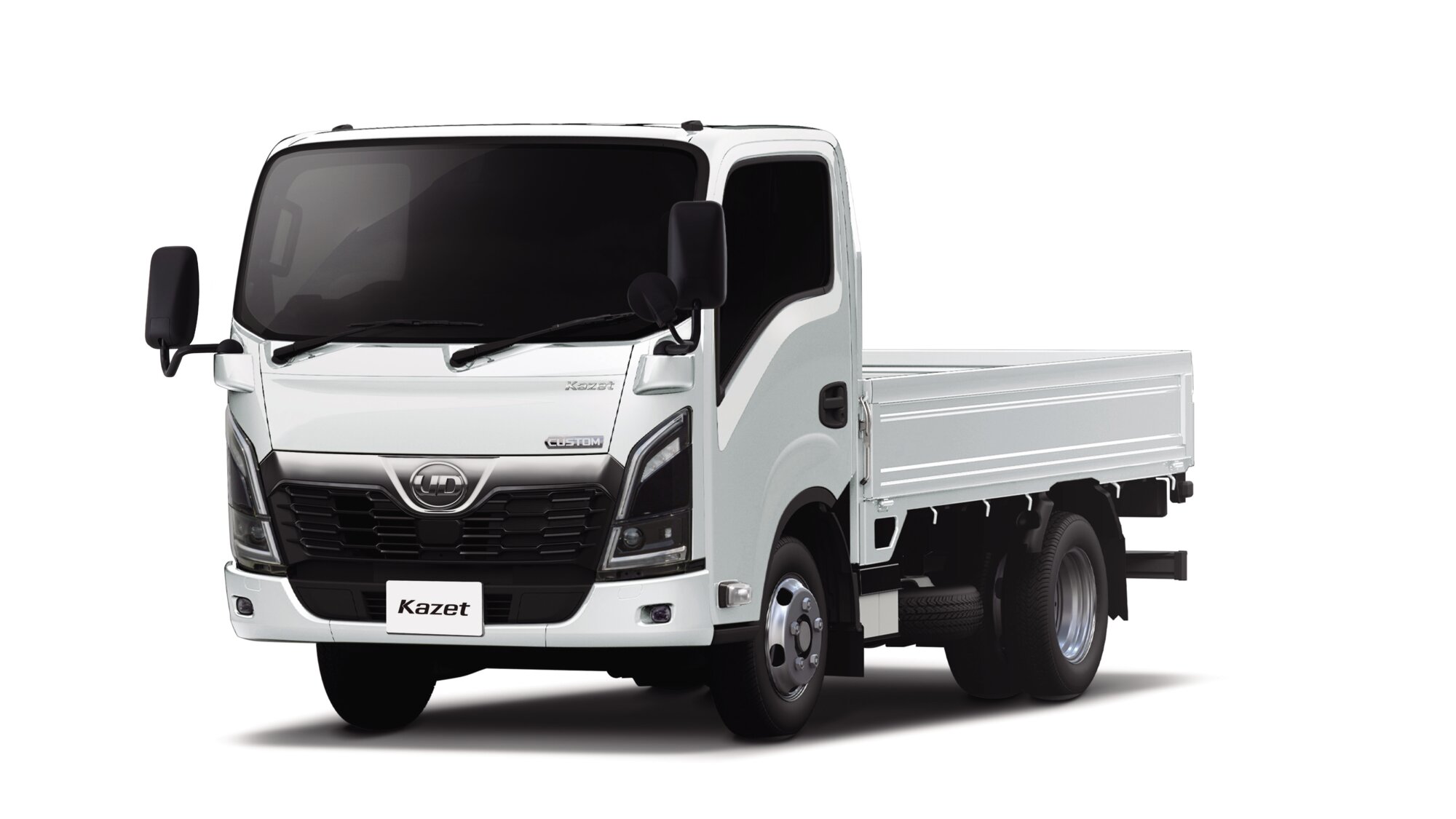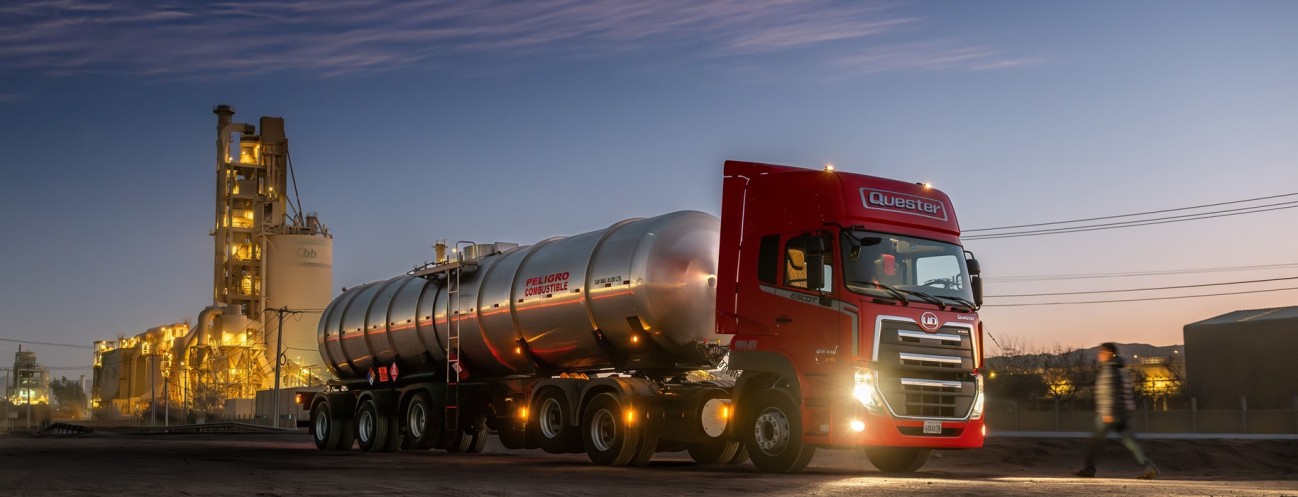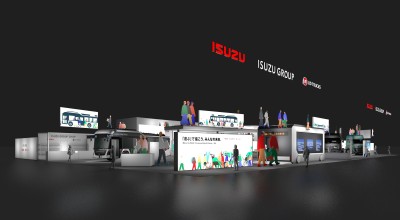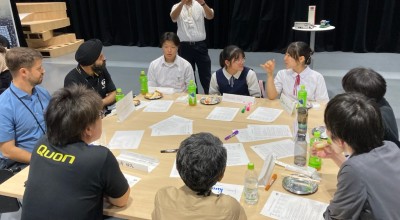
Toyota Tsusho Corporation (“Toyota Tsusho”), Advanced Smart Mobility Co., Ltd. (“Advanced Smart Mobility”), Nippon Koei Co., Ltd. (“Nippon Koei”), and Mizuho Research & Technologies, Ltd. (“Mizuho Research & Technologies”) were contracted by the Ministry of Economy, Trade and Industry (METI) and the Ministry of Land, Infrastructure, Transport and Tourism (MLIT) in fiscal 2021 to perform the “initiative for the realization of high-performance trucks on expressways (Theme 3)”*1 of the “Project on Research, Development, Demonstration and Deployment (RDD&D) of Automated Driving toward the Level 4*2 and its Enhanced Mobility Services (RoAD to the L4).” The four contractors are advancing technological development and environmental preparation for the social implementation of Level 4 autonomous driving trucks.
Starting today, the four contractors, along with four commercial vehicle manufacturers—Isuzu Motors Limited (“Isuzu”), Hino Motors, Ltd. (“Hino”), Mitsubishi Fuso Truck and Bus Corporation (“MFTBC”), and UD Trucks Corporation (“UD Trucks”)—have commenced comprehensive driving tests on the Shin-Tomei Expressway as the culmination of their verification and demonstration efforts. This initiative represents the final year of Theme 3 projects.
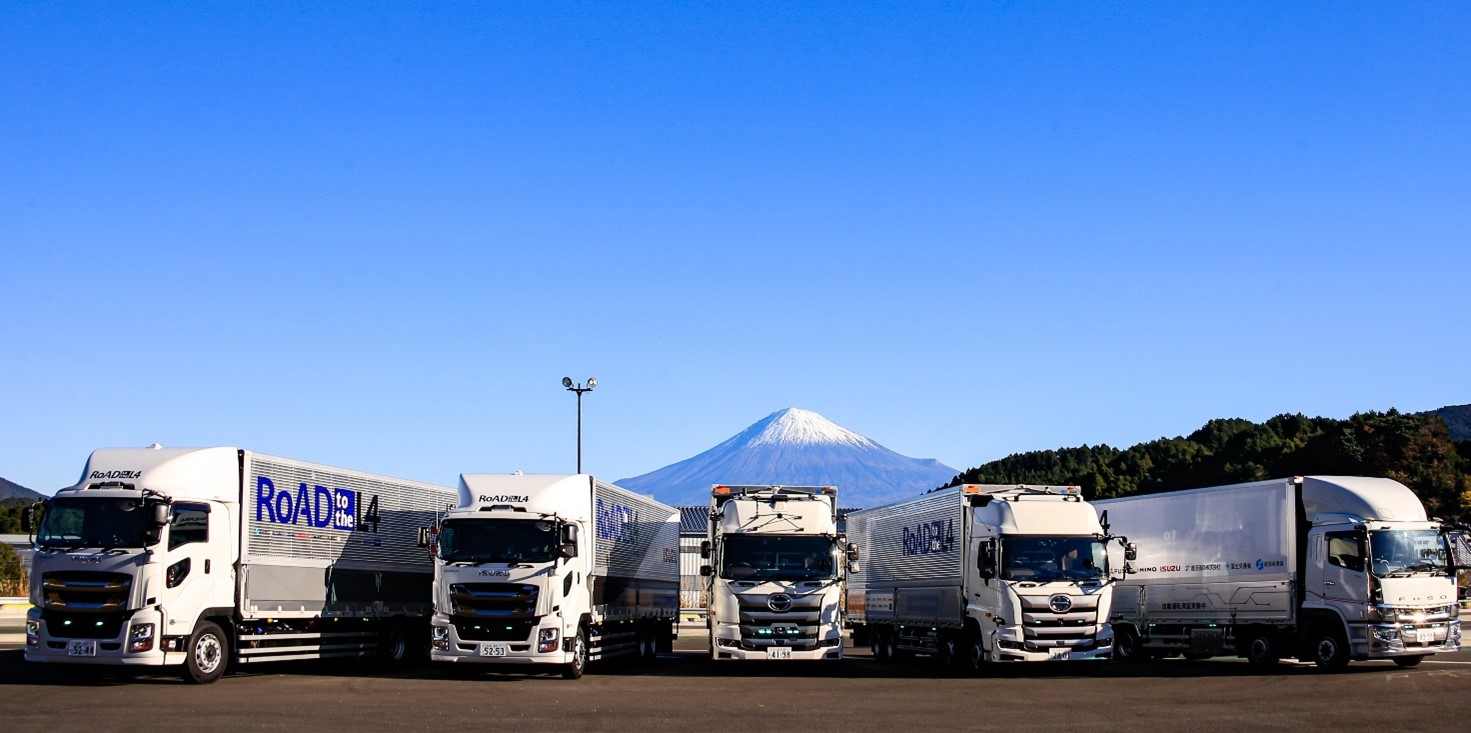
Autonomous driving test vehicles from UD Trucks, Isuzu, Advanced Smart Mobility, Hino, and MFTBC
1. Purposes and Background of Theme 3 Projects
To solve social issues such as driver shortages, the four contractors, together with the four commercial vehicle manufacturers, logistics companies, and other related parties, are aiming for the social implementation of autonomous driving trucks on highway(s) from fiscal 2026 onward through a joint public-private effort.
To date, we aims to achieve single-vehicle driverless driving between relay areas, such as logistics facilities around expressways and service areas, and verifies support from external infrastructure equipment, operations such as monitoring and management, and vehicle functions necessary for such operations to develop the environment for the practical implementation of Level 4 autonomous driving trucks.
The previous year’s demonstration tests were conducted between the Surugawan-Numazu service area and Hamamatsu service area on the Shin-Tomei Expressway. We individually confirmed and verified functions such as the automated departure/arrival system (a function that automatically starts and parks the vehicle), the emergency stopping capability (a braking function to stop the vehicle in case of abnormalities), the predictive information support function (a feature that uses information such as broken-down vehicles and fallen objects transmitted from roadside equipment like ITS spots*3 to assist with lane changes), and remote monitoring functions.
2. Overview of Comprehensive Driving Demonstration Tests
The final fiscal year demonstration test for Theme 3 projects will involve conducting comprehensive driving demonstration tests on the following functions, which have been previously verified individually, on the Shin-Tomei Expressway (Shin-Gotemba IC to Okazaki service area), including the Automated Driving Service Support Road*4.
・Automated driving (Level 4 driving assumed) on the Automated Driving Service Support Road and Level 2 driving*5 on other sections
・Automatic merging via automatic departure/arrival and merge assistance at the Surugawan-Numazu service area and the Hamamatsu service area
・Automatic lane changes and speed adjustments supported by roadside equipment providing predictive information
・Evaluation of operational monitoring functions, including emergency responses
[Diagram of the Comprehensive Driving Demonstration Test]
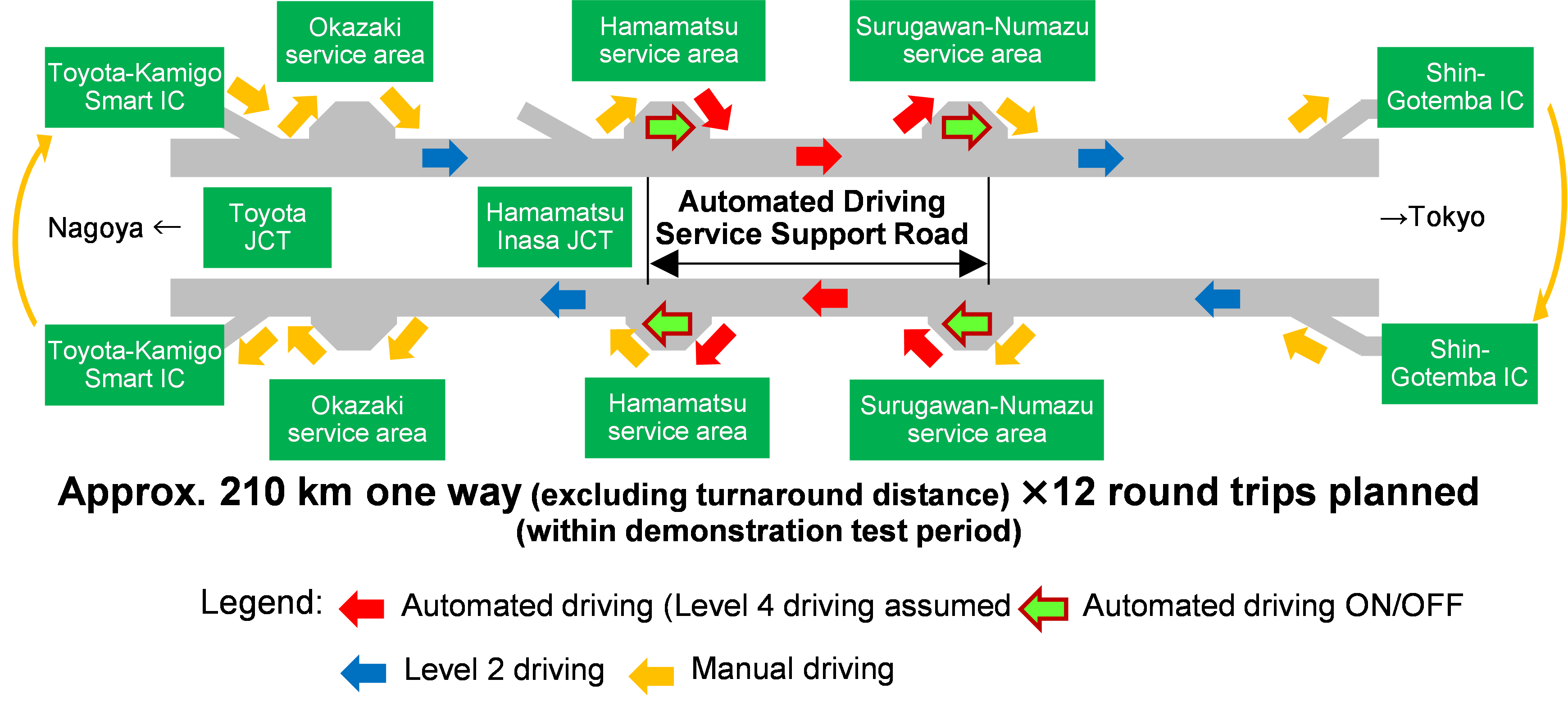
3. Future Initiatives
This comprehensive driving demonstration test is scheduled to run through December 2025. We will conduct verification to contribute to standardizing the technological and operational environment for the social implementation of autonomous driving trucks from fiscal 2026 onward. As a summary of the Theme 3 projects, the outcomes of this verification will be compiled into a “Guide for Introducing Level 4 Autonomous Driving Trucks on Expressways” (for infrastructure providers and autonomous driving truck suppliers) and the “Autonomous Driving Truck Utilization Guidebook” (for logistics and transportation operators).
4. Roles of Each Company
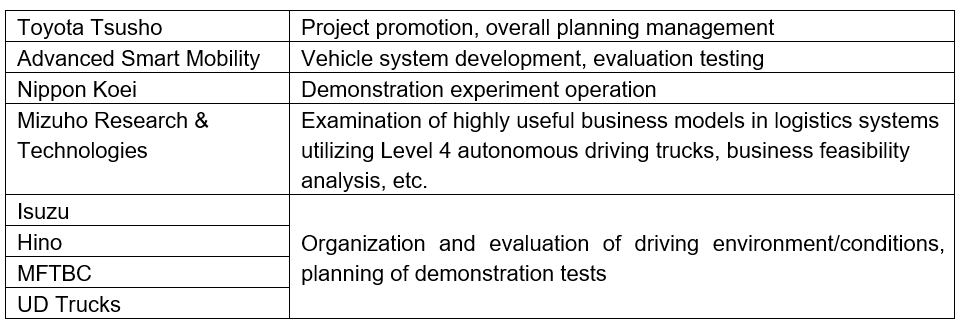
*1 Four initiatives (Themes 1 to 4) have been established for the realization and spread of driverless autonomous driving services, and the “initiative for the realization of high-performance trucks on expressways (Theme 3)” is one of them.
(Reference: Japanese only) Ministry of Economy, Trade and Industry:
https://www.meti.go.jp/policy/mono_info_service/mono/automobile/Automated-driving/automated-driving.html
*2 A state in which the autonomous driving device replaces all driving operations in a limited area that meets specific driving environment conditions.
(Reference: Japanese only) Ministry of Land, Infrastructure, Transport and Tourism:
https://www.mlit.go.jp/report/press/content/001377364.pdf
*3 Intelligent Transport Systems (ITS) Spot is infrastructure for road-vehicle communication that enables two-way exchange of road traffic information with vehicles. It is an information and communication device installed on roads. Drivers can receive real-time traffic information and safety information.
*4 Road sections equipped to support the driving of automated driving vehicles. Road sensors and communication equipment are utilized on highways and general roads to assist the operation of automated driving vehicles.
*5 Level 2 driving refers to driving based on adaptive cruise control and lane-keeping assistance, where the driver operates the steering wheel and other controls while maintaining full control.
Automated driving (Level 4 driving assumed)” builds upon Level 2 driving by incorporating merging assistance and predictive information support for obstacles ahead, allowing the driver to operate the vehicle in a hands-off state.
Reference: Overview of Each Company
Overview of Toyota Tsusho Corporation
| Location | Nagoya City, Aichi Prefecture |
| Established | July 1, 1948 |
| Capital | 64,936 million yen |
| Representative | President & CEO Toshimitsu Imai |
| Business description | Domestic trade of goods, export/import of goods, offshore trade, construction undertaking, insurance agents, etc. |
| Website | https://www.toyota-tsusho.com/english/ |
Overview of Advanced Smart Mobility Co., Ltd.
| Location | Tsukuba City, Ibaraki Prefecture |
| Established | June 19, 2014 |
| Capital | 95 million yen |
| Representative | CEO Masaya Segawa, Ph. D. |
| Business description | Development, manufacture and sale of autonomous driving system / Support of operation autonomous driving mobilities / Development hardware and software for the autonomous driving |
| Website | https://www.as-mobi.com/en/ |
Overview of Nippon Koei Co., Ltd.
| Location | Chiyoda-ku, Tokyo |
| Established | June 7, 1946 |
| Capital | 500 million yen |
| Representative | Representative Director and President Tomohisa Fukuoka |
| Business description | Construction technology consulting services in Japan and overseas |
| Website | https://www.n-koei.co.jp/consulting/english/ |
Overview of Mizuho Research & Technologies
Location | Chiyoda-ku, Tokyo |
Established | April 1, 2021 |
Capital | 1,627.5 million yen |
Representative | President & CEO (Representative Director) Masatoshi Yoshihara |
Business description | Information processing services, think tank consulting services |
Website | https://www.mizuhogroup.com/information-and-research |
Overview of Isuzu Motors Limited
Location | Yokohama City, Kanagawa Prefecture |
Established | April 9, 1937 |
Capital | 40,644 million yen |
Representative | President and Representative Director, COO Shinsuke Minami |
Business description | Manufacturing and sale of products such as automobiles, transportation machinery and equipment, prime movers, etc. and their parts, as well as related materials and supplies |
Website | https://www.isuzu.co.jp/world/ |
Overview of Hino Motors, Ltd.
Location | Hino City, Tokyo |
Established | May 1, 1942 |
Capital | 72,717 million yen |
Representative | President & CEO Satoshi Ogiso |
Business description | Manufacturing and sales of trucks, buses, etc. |
Website | https://www.hino-global.com/ |
Overview of Mitsubishi Fuso Truck and Bus Corporation
Location | Kawasaki City, Kanagawa Prefecture |
Established | January 6, 2003 |
Capital | 35,000 million yen |
Representative | President & CEO Karl Deppen |
Business description | Development, design, manufacturing, sales/purchases, import/export, and other trading of trucks, buses, industrial engines, etc. |
Website | https://www.mitsubishi-fuso.com/en/ |
Overview of UD Trucks Corporation
Location | Ageo City, Saitama Prefecture |
Established | December 1, 1935 |
Capital | 10,000 million yen |
Representative | President and CEO Koichi Ito |
Business description | Development, manufacturing, and sales of heavy-duty trucks, sales of medium-duty and light-duty trucks, manufacturing and sales of automotive parts, maintenance of trucks and buses, sales of repair parts for trucks and buses |
Website | https://www.udtrucks.com/ |

